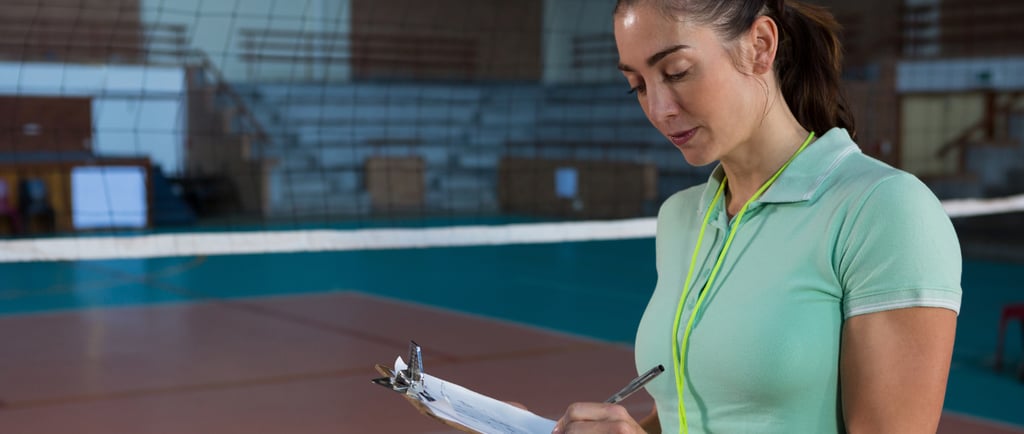Elevating Team Performance Through Practice Planning
This blog delves into the significance of detailed practice planning and offers actionable strategies for coaches, including those new to the role, to enhance their team's development.
2/20/20252 min read


In youth athletics, the meticulous planning and execution of practice sessions are pivotal to a team's success. Attention to detail during these sessions not only hones the technical skills of young athletes but also fosters a cohesive team environment, bolstering both performance and morale.
The Importance of Detailed Practice Planning
Effective practice planning serves as the foundation for athletic excellence and team unity. By focusing on the nuances of training sessions, coaches can create an environment conducive to comprehensive skill development, strategic understanding, and positive team dynamics.
1. Skill Development and Mastery
Structured and detail-oriented practices ensure that athletes receive comprehensive training, covering all facets of the game. By concentrating on specific skills and techniques, coaches can identify and address individual strengths and weaknesses, leading to overall team improvement.
Tip: Incorporate varied drills that target different skill sets, ensuring balanced development.
2. Enhanced Team Cohesion
Attention to detail in practice fosters clear communication and understanding among team members. When players are well-versed in their roles and the team's strategies, it leads to seamless on-field coordination.
Tip: Implement regular team-building exercises and scrimmages to promote unity and trust.
3. Boosted Morale and Confidence
Consistent, well-structured practices provide a sense of accomplishment, boosting players' confidence. As athletes observe their progress, their enthusiasm and commitment to the sport intensify.
Tip: Celebrate small milestones and improvements to motivate players continually.
Strategies for Implementing Detailed Practices
To harness the benefits of meticulous practice planning, coaches can employ several strategies that cater to both individual and team development.
1. Set Clear Objectives
Establishing specific goals for each practice session ensures that both coaches and players understand the desired outcomes. Clear objectives provide direction and purpose, making each session productive and focused.
Tip: Communicate the day's objectives at the start of practice to align everyone's focus.
2. Develop Structured Practice Plans
A well-organized plan maximizes efficiency and ensures comprehensive coverage of necessary skills and strategies. Structured practices help maintain momentum and keep athletes engaged.
Tip: Allocate time blocks for warm-ups, skill drills, tactical training, and cool-downs.
3. Provide Individualized Attention
Recognizing that each athlete has unique needs is crucial. Tailoring feedback and drills to individual players can accelerate development and address specific areas for improvement.
Tip: Schedule one-on-one sessions or provide personalized feedback during practice.
4. Encourage Open Communication
Fostering an environment where players feel comfortable expressing concerns or suggestions can lead to improved practices and team dynamics. Open dialogue promotes mutual respect and understanding.
Tip: Hold brief meetings post-practice to gather feedback and discuss any issues.
5. Take Notes
Using a note-taking system helps in keeping track of things like performance, identifying patterns, and making informed decisions for future practices. This approach can highlight areas of success and those needing improvement.
Tip: Record practices and games to analyze later, providing visual feedback to players.
The Impact of Attention to Detail on Team Performance
A meticulous approach to practice translates into tangible benefits during competitions. By focusing on details, teams can enhance their performance, adaptability, and resilience.
Improved Game Performance: Teams that practice with precision are better prepared to execute plays effectively under pressure.
Adaptability: Detailed preparation enables teams to adjust strategies swiftly in response to opponents' tactics.
Resilience: A strong foundation built through focused practice instills confidence, allowing teams to navigate challenges with composure.
Conclusion
In youth sports, the significance of attention to detail during practice cannot be overstated. It is the cornerstone of skill development, team cohesion, and elevated morale. By implementing structured, detail-oriented practice sessions, coaches empower their athletes to reach their full potential, both individually and collectively. Embracing this approach not only enhances performance on the field but also fosters a positive and supportive team culture that benefits young athletes beyond the game.

